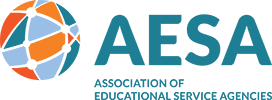Federal education policy is shifting rapidly—and this week has brought a wave of significant, fast-moving developments. We’re committed to keeping members informed and ready to respond in real time.
Read MoreFrom a Supreme Court victory protecting broadband access to the restoration of ESSER reimbursements for all states—and a major setback for the federal voucher proposal—this week brought several wins for schools and students
Read MoreOn March 28, the Department informed SEAs that the Administration has canceled any prior approval for “late liquidation” of remaining funds from a variety of federal pandemic recovery funds, including American Rescue Plan Elementary and Secondary School Emergency Relief (ESSER and Homeless Children and Youth (HCY) funds.
Read MoreOn May 30, Trump Administration released additional budget materials to Congress for Fiscal Year 2026 (FY26). While not officially the full FY26 budget proposal, this information builds upon the “skinny budget” and provides specific funding requests for programs.
Read MoreWhile AESA’s advocacy regarding the budget reconciliation package has been laser focused on cuts to Medicaid and the creation of a national school voucher program, we wanted to flag two other issues that could impact school financing and student health and wellness.
Read MoreSecretary of State Marco Rubio issued a consular cable to U.S. embassies and consulates regarding F and J visa appointments. According to news coverage, “the memo instructs consular posts to pause processing of J visa applications while the Department develops procedures to expand social media screening.” While the intent appeared to focus on international students, the guidance was broadly worded and is currently being interpreted by posts as applying to all J categories—including teacher, camp counselor, au pair, and summer work travel programs.
Read MoreThe U.S. Department of Education (ED) published a set of competitive grant priorities that the agency says it intends to apply to all discretionary grants moving forward. Grant competitions will incorporate three new priorities: “evidence-based literacy,” “school choice,” and “returning education to the States.”
Read MoreA federal judge issued a preliminary injunction on Thursday ordering the U.S. Department of Education (ED) to reinstate employees who were terminated under the March 11th reduction in force (RIF). The order also prohibits the administration from implementing the March 20th Executive Order to dismantle ED.
Read MoreAESA issued a statement in support of the U.S. Supreme Court’s 4-4 decision in Oklahoma Statewide Charter School Board v. Drummond, which effectively upholds a lower court ruling preventing the establishment of the first publicly funded religious charter school in the nation.
Read MoreA provision buried in the House Republican reconciliation package would ban states from taking any regulatory or legislative action on artificial intelligence (AI) for ten years. AESA opposes this federal overreach, and joined more than 140 organizations in a letter opposing the inclusion of the provision in the broader reconciliation package.
Read MoreRelated Resources
|
Other websites and resources:
United States Department of Education
IDEA Legislation:
Chapter 33-Education of Individuals with Disabilities
